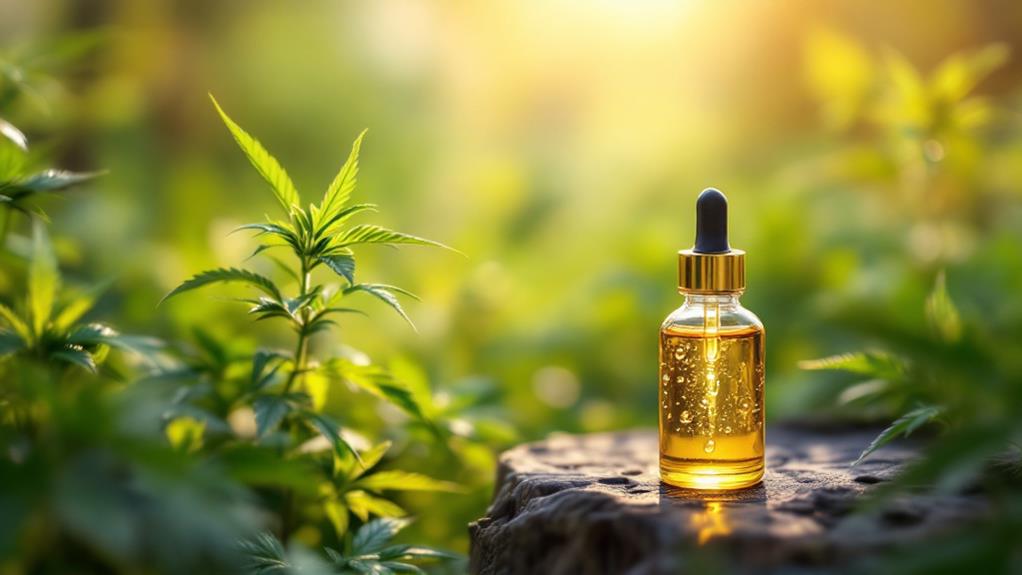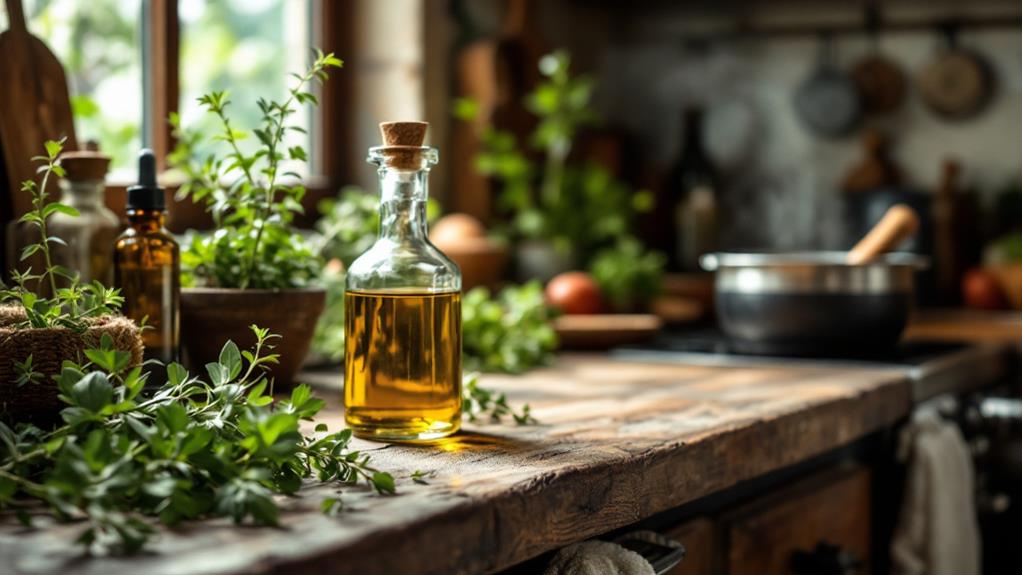A Complete Guide to the Types and Benefits of Lemongrass
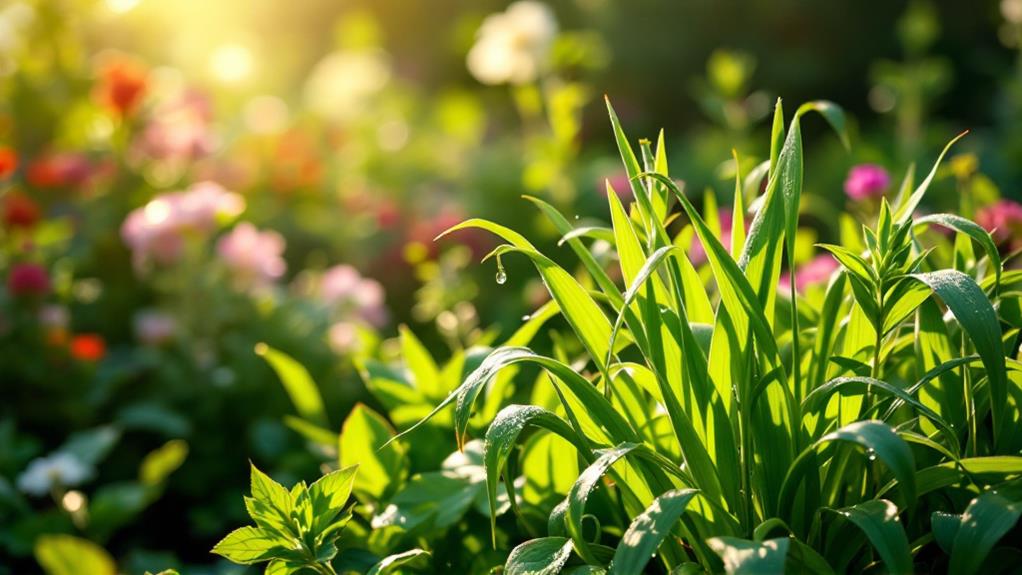
You're exploring lemongrass, mainly *Cymbopogon citratus*, recognized for its citrusy aroma and versatility. It's a staple in Southeast Asian dishes and revered for medicinal uses. Rich in citral, lemongrass offers antioxidant, anti-inflammatory, and antimicrobial benefits. You can grow it easily in warm, humid climates with well-drained soil using seeds, cuttings, or store-bought stalks. Apart from culinary delights, it supports digestion, reduces anxiety, and may help lower blood pressure. Its strong roots prevent erosion and deter pests naturally. However, be cautious of allergies and interactions with medications. Much more about this intriguing herb awaits you.
Understanding Lemongrass
As far as understanding lemongrass is concerned, knowing its origins and characteristics is key. Lemongrass, with the scientific name Cymbopogon citratus, is a perennial grass native to Southeast Asia. You can easily recognize it by its tall, slender green leaves and fresh lemony scent. This fragrance isn't just for show; it plays a vital role in both culinary and medicinal applications. The West Indian variety, known as C. citratus, is popular in cooking, while C. flexuosus is valued for its fundamental oil production.
When you consider its health benefits, lemongrass stands out due to its active compounds like citral, limonene, and geraniol. These compounds provide antioxidant, anti-inflammatory, and antimicrobial properties. Traditionally, lemongrass has been used in Asian medicine to aid digestion and promote relaxation. Nowadays, more people recognize its potential to relieve anxiety and lower blood pressure, although more research is needed to confirm these effects.
If you're thinking of growing lemongrass, it thrives best in warm, humid climates with full sun and well-drained, organic-rich soil. Regardless of whether you start from seeds, cuttings, or store-bought stalks, you'll appreciate its versatile benefits.
Varieties and Historical Background
While understanding lemongrass gives you a grasp of its characteristics and uses, probing its varieties and historical background offers a deeper insight into this versatile plant. The lemongrass plant, scientifically known as *Cymbopogon*, boasts several species, with *Cymbopogon citratus*—the West Indian lemongrass—being the most prominent for culinary and medicinal uses. Its citrusy aroma makes it a staple in many Asian cuisines, and its health benefits have been recognized in traditional medicine systems like Chinese Medicine and Ayurveda.
The historical background of lemongrass cultivation traces back to the 17th century in the Philippines. By the 20th century, India had become a leading exporter of lemongrass products, showcasing the plant's growing global significance. The introduction of lemongrass to the Western hemisphere happened in the early 1900s, with commercial cultivation taking off around 1947.
Beyond the West Indian variety, other species like *Cymbopogon ambiguus*, native to Australia, and *Cymbopogon refractus*, known for its drought tolerance, illustrate the plant's adaptability. These varieties highlight the diverse applications and resilience of the lemongrass plant, cementing its role in both traditional and modern practices worldwide.
Cultivation and Harvesting

Lemongrass cultivation is a straightforward process if you provide the right conditions. This tropical plant thrives in warm, humid climates with plenty of sun. Here's a quick guide to guarantee successful growth:
- Soil and Watering: Lemongrass loves well-drained, fertile soil rich in organic matter. Regular watering is essential, but be cautious not to waterlog the soil.
- Propagation: You can start growing lemongrass from seeds, cuttings, or even store-bought stalks. Choose whichever method suits your needs and resources.
- Harvesting: When stalks reach 12-18 inches, it's time to harvest. Cut them at the base in the morning for ideal flavor, but leave some stalks for continuous growth and future yields.
Culinary Uses and Recipes
Having nurtured your lemongrass to maturity, you're now ready to explore its lively culinary potential. In Southeast Asian cuisines, especially in dishes like Thai Green Curry and Tom Yum soup, lemongrass is celebrated for its citrusy flavour. It's a versatile ingredient that can transform your cooking, regardless of whether you use it fresh, dried, or in powdered form. However, fresh lemongrass is preferred for its lively flavor and aromatic qualities.
To make the most of it, focus on the tender inner stalks, which can be sliced or minced to release their full potential in your recipes. These are perfect for adding zest to marinades, dressings, and sauces. Don't overlook the tougher outer leaves, though—they're excellent for infusing flavor into broths and teas.
Pair lemongrass with ginger, garlic, and chili peppers to create dynamic flavor profiles. Whether you're crafting a zesty marinade or a revitalizing beverage, lemongrass offers a unique twist. Consider brewing it into a soothing tea or incorporating it into cocktails and mocktails for a delightful surprise. With its diverse culinary uses, lemongrass can enhance your dishes with an unexpected citrusy flair.
Health Benefits Overview
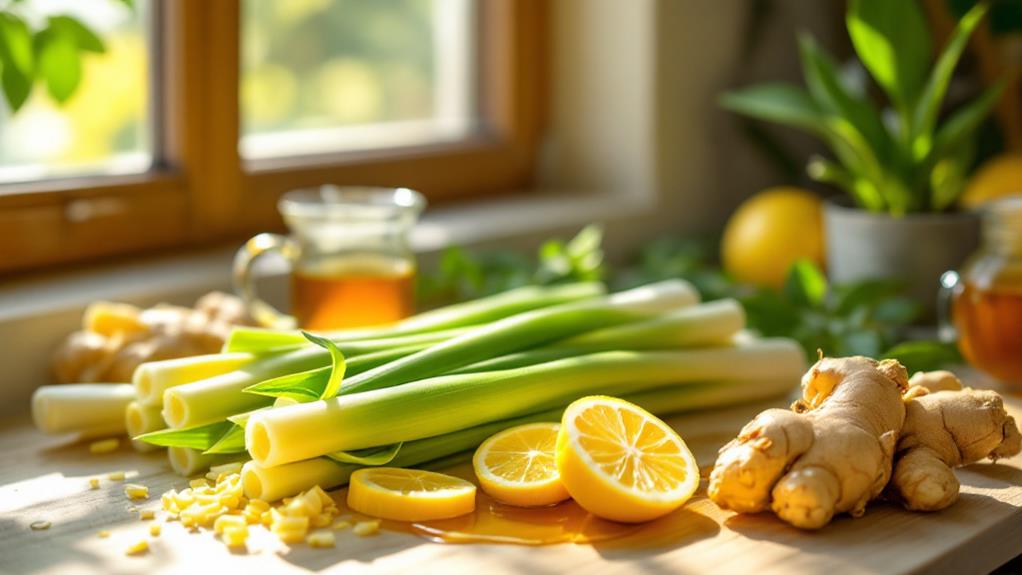
The allure of lemongrass extends beyond its culinary appeal, offering a range of health benefits that might surprise you. Rich in antioxidants, lemongrass tea is packed with crucial vitamins like A, C, and B-complex, supporting comprehensive health and well-being. Here's a quick look at the benefits you can enjoy:
- Digestive Health: Lemongrass is known to improve digestion. Regular consumption of lemongrass tea can alleviate issues like bloating and gas, making it a soothing remedy for your digestive system.
- Anti-Inflammatory and Antimicrobial Properties: The active compounds in lemongrass, such as citral and limonene, boast impressive anti-inflammatory and antimicrobial attributes. These properties can help protect your body from infections and reduce inflammation-related discomfort.
- Cardiovascular Support: Lemongrass has shown potential in lowering blood pressure and cholesterol levels, contributing to improved cardiovascular health. By incorporating it into your routine, you might support your heart's well-being naturally.
Additionally, lemongrass vital oil is noted for its calming effects, potentially helping to reduce anxiety and stress levels. With its myriad health benefits, lemongrass is more than just a flavorful herb—it's a natural ally for your health expedition.
Medicinal and Therapeutic Uses
A powerhouse of medicinal benefits, lemongrass offers more than just flavor to your dishes. Its active compounds, citral and limonene, pack a punch with their antioxidant, anti-inflammatory, and antimicrobial properties. This herb isn't just a culinary delight; it holds therapeutic potential that can improve your well-being.
If you struggle with digestive issues, lemongrass might be your herbal ally. Traditional uses include alleviating bloating and gas, helping you feel more comfortable. Imagine sipping on a warm cup of lemongrass tea to ease digestive discomfort. But the benefits don't stop there—this tea may also aid in anxiety relief. Some studies show it can help reduce anxiety and depressive symptoms, making it a natural way to promote relaxation and peace of mind.
Lemongrass also shines in its antimicrobial prowess. It's effective against pathogens like Candida albicans and Staphylococcus aureus, which means it can be a potent tool in infection prevention. Furthermore, its citral component has shown promise in cancer research, as it induces cell death in specific tumor cells. Welcome lemongrass for its diverse medicinal and therapeutic benefits, and let it support your health naturally.
Lemongrass in Home and Garden

Cultivating lemongrass in your home garden not only improves its beauty but also offers practical benefits. Its tall, slender green lemongrass leaves contribute a touch of elegance, making it a decorative enhancement to any garden. Beyond aesthetics, lemongrass is versatile, providing culinary and medicinal uses that contribute to your health benefits. Here's how you can make the most of lemongrass in your home gardens:
- Erosion Control: Lemongrass stabilizes steep ground. Its roots hold the soil, reducing erosion and maintaining the landscape's integrity. If you have sloped areas, planting lemongrass can be a natural solution.
- Natural Pest Repellent: The plant naturally repels mosquitoes and other pests, so you won't need to rely on harmful chemicals. This makes your garden a more pleasant place to relax without the nuisance of bugs.
- Easy Propagation: Starting your lemongrass garden is simple. You can propagate it from store-bought stalks by placing them in water until roots form, then transferring them to well-drained, organic-rich soil under full sun exposure.
Nutritional Profile
When you incorporate lemongrass into your diet, you enjoy a host of nutritional benefits. Its impressive nutritional profile makes it a great choice for those seeking to maintain a healthy lifestyle. With only 99 calories per 100 grams, lemongrass is ideal for weight management. You'll find it rich in antioxidants, including vital vitamins like A, C, and B-complex. These vitamins are important for cellular protection and enhancing your overall health, helping your body fend off numerous ailments.
Lemongrass also offers vital minerals, such as magnesium, potassium, and calcium. These minerals support numerous bodily functions, from maintaining strong bones to regulating muscle contractions and nerve functions. By consuming lemongrass, you're contributing to your body's daily mineral needs, ensuring it operates smoothly and efficiently.
Additionally, the dietary fiber in lemongrass promotes digestive health. It helps maintain regular bowel movements, preventing constipation and supporting a healthy digestive system. The anti-inflammatory properties of lemongrass are another significant benefit. They may alleviate chronic inflammation, reducing your risk of developing various diseases and enhancing your general wellness. By incorporating lemongrass into your meals, you're making a positive impact on your health.
Potential Risks and Precautions
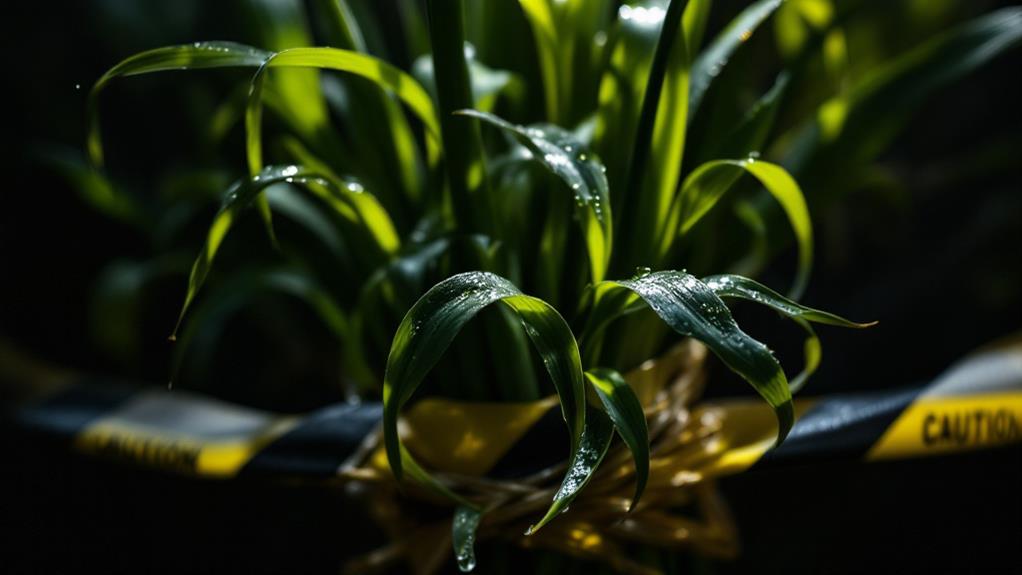
While lemongrass offers numerous health benefits, it's important to be aware of potential risks and precautions associated with its use. For some individuals, lemongrass can cause an allergic reaction, leading to skin irritation or rashes, especially when applied topically. It's wise to perform a patch test to check for allergies before using lemongrass aromatic oil on your skin. Furthermore, high consumption of lemongrass might result in digestive upset, particularly if you have pre-existing gastrointestinal conditions.
Here are some key precautions you should consider:
- Allergic Reaction: If you know you're sensitive to lemongrass, avoid its use or consult with a healthcare professional initially. Conduct a patch test to prevent adverse reactions.
- Pregnancy Concerns: If you're pregnant, consult your healthcare professional before using lemongrass, as it may stimulate the uterus, potentially posing risks to your pregnancy.
- Medication Interactions: Lemongrass can interact with certain medications, such as blood thinners. It's vital to seek guidance from a healthcare professional if you're on medications to avoid complications.


